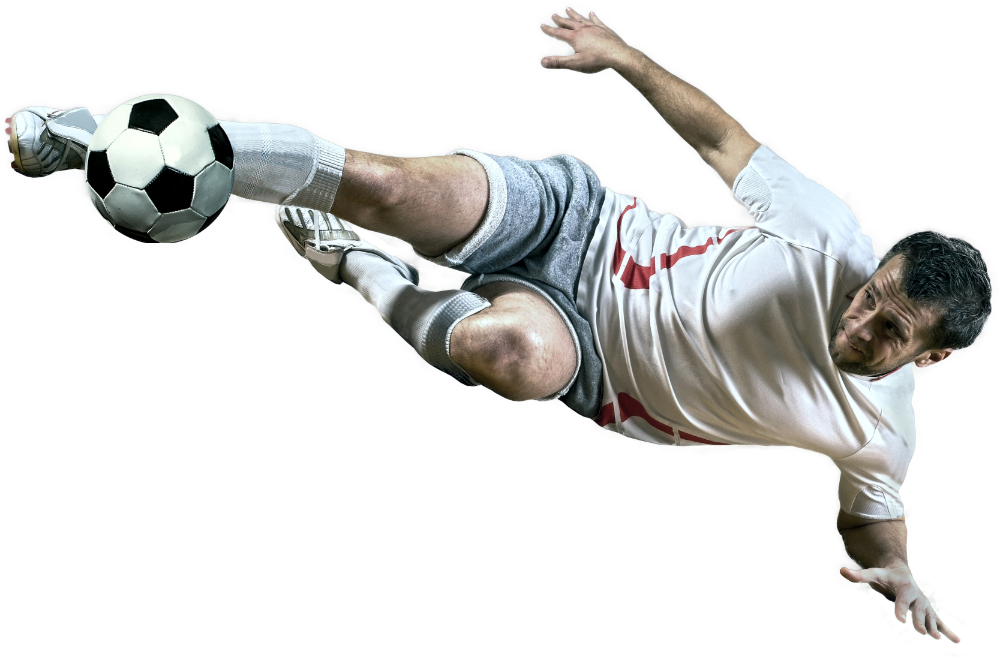Executive Functions Predict the Success of Top-Soccer Players
While the importance of physical abilities and motor coordination is non-contested in sport, more focus has recently been turned toward cognitive processes important for different
L’allenamento cognitivo permette una corretta rappresentazione spazio/temporale attraverso la sintesi dei dati sensoriali ricevuti e incentiva la nascita di strategie condivise da contrapporre a quelle elaborate dagli avversari.
L’atleta intelligente analizza e interpreta continuamente le informazioni che riceve dall’ambiente per sfruttarle a suo vantaggio.
Gli sport definiti come “open-skills” sono caratterizzati da un ambiente altamente dinamico e imprevedibile, in cui il contesto di gioco si modifica rapidamente e ogni situazione differisce dalla precedente. I giocatori in questi sport sono costantemente chiamati a adattarsi a queste variazioni, mostrando una gamma di movimenti, azioni di gioco e strategie di pensiero continuamente diversificata.
È essenziale che i giocatori degli sport “open-skills” possiedano competenze fisico-atletiche ben sviluppate e automatizzate, affinché possano modificare efficacemente le proprie azioni in base alle mutevoli circostanze del gioco. Inoltre, è cruciale che il giocatore disponga di una solida base tecnico-tattica e che sia capace di applicarla con flessibilità, adattando le proprie risposte e comportamenti di gioco alle varie situazioni incontrate durante la partita.
Oltre a ciò, un giocatore di successo deve sviluppare determinate abilità cognitive, in particolare quelle legate alle funzioni esecutive, che gli permettano di adeguarsi ai continui cambiamenti situazionali (Miyake et al., 2000):
Permette di conservare il ricordo di tutte quelle nuove informazioni utili allo svolgimento di un’attività. Consente ai giocatori di tenere a mente le variabili della partita, leggendo così le situazioni, e di mettere in atto dei comportamenti. Aiuta ad analizzare contemporaneamente la posizione di compagni, avversari, palla e spazio vuoto, così da potersi muoversi efficacemente.
Capacità di modificare la propria azione in base ai cambiamenti dell’ambiente, dovuti anche al compito che si sta eseguendo. Pensiamo ad esempio a una rapida transizione di gioco o alle variabili tattiche che deve considerare in tempi molto ristretti un giocatore in possesso palla.
Capacità di eliminare, nell’esecuzione di un compito, tutte le variabili che possono avere il ruolo di distrattori nel raggiungimento dello scopo. Aiuta i giocatori a concentrarsi verso l’azione in corso. Permette di abbandonare rapidamente schemi mentali non più utili per adottarne dei nuovi.
Miyake, A., Friedman, N.P., Emerson, M.J., Witzki, A.H., Howerter, A., & Wager, T.D. (2000). The unity and diversity of executive functions and their contributions to complex “frontal lobe” tasks: a latent variable analysis. Cogn. Psychol. 41, 49–100.




While the importance of physical abilities and motor coordination is non-contested in sport, more focus has recently been turned toward cognitive processes important for different
The visual search characteristics of 15 expert and 16 novice badminton players were recorded as they performed a test of anticipatory cue usage. Experts were
| Cookie | Durata | Descrizione |
|---|---|---|
| cookielawinfo-checkbox-advertisement | 1 year | Set by the GDPR Cookie Consent plugin, this cookie is used to record the user consent for the cookies in the "Advertisement" category . |
| cookielawinfo-checkbox-analytics | 11 months | This cookie is set by GDPR Cookie Consent plugin. The cookie is used to store the user consent for the cookies in the category "Analytics". |
| cookielawinfo-checkbox-functional | 11 months | The cookie is set by GDPR cookie consent to record the user consent for the cookies in the category "Functional". |
| cookielawinfo-checkbox-necessary | 11 months | This cookie is set by GDPR Cookie Consent plugin. The cookies is used to store the user consent for the cookies in the category "Necessary". |
| cookielawinfo-checkbox-others | 11 months | This cookie is set by GDPR Cookie Consent plugin. The cookie is used to store the user consent for the cookies in the category "Other. |
| cookielawinfo-checkbox-performance | 11 months | This cookie is set by GDPR Cookie Consent plugin. The cookie is used to store the user consent for the cookies in the category "Performance". |
| CookieLawInfoConsent | 1 year | Records the default button state of the corresponding category & the status of CCPA. It works only in coordination with the primary cookie. |
| elementor | never | This cookie is used by the website's WordPress theme. It allows the website owner to implement or change the website's content in real-time. |
| viewed_cookie_policy | 11 months | The cookie is set by the GDPR Cookie Consent plugin and is used to store whether or not user has consented to the use of cookies. It does not store any personal data. |
| wpEmojiSettingsSupports | session | WordPress sets this cookie when a user interacts with emojis on a WordPress site. It helps determine if the user's browser can display emojis properly. |
| Cookie | Durata | Descrizione |
|---|---|---|
| _ga | 1 year 1 month 4 days | Google Analytics sets this cookie to calculate visitor, session and campaign data and track site usage for the site's analytics report. The cookie stores information anonymously and assigns a randomly generated number to recognise unique visitors. |
| _ga_* | 1 year 1 month 4 days | Google Analytics sets this cookie to store and count page views. |